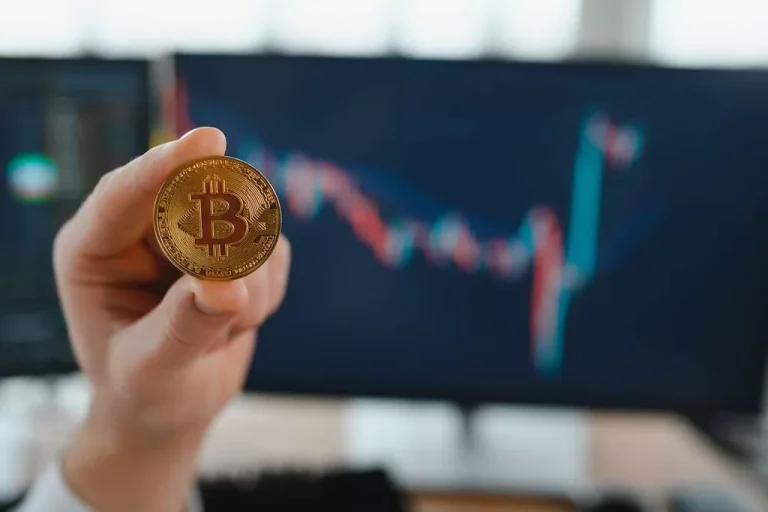Content
One such concept is a “dark pool.” This mysterious term often piques the curiosity of those unfamiliar with the intricacies of financial markets. In this article, we will dark pool software demystify the concept of dark pools and shed light on their role in the trading landscape. Some dark pools are well-known on the market and are created by some of the largest financial institutions, such as commercial and investment banks, such as JP Morgan and Goldman Sachs, among others.
What are the risks of Dark Pools?

In traditional exchanges, high-frequency traders can observe the orders placed on the public order book and potentially exploit market movements. In dark pools, these traders are unable to see the orders, preventing them from front-running or executing trades based on privileged information. Dark pool trading involves legal private securities marketplaces https://www.xcritical.com/ that allow institutional investors to deal large blocks of shares, known as block trading, without revealing their secrets.
How Do Decentralized Dark Pool Trades Work?
Despite these concerns, dark pools continue to play a crucial role in modern finance, providing a valuable alternative to traditional public stock exchanges. The fragmentation of electronic trading platforms has allowed dark pools to be created, and they are normally accessed through crossing networks or directly among market participants via private contractual arrangements. Generally, dark pools are not Fintech available to the public, but in some cases, they may be accessed indirectly by retail investors and traders via retail brokers. Firstly, the anonymity they offer can prevent price manipulation by high-frequency traders or other market participants. Additionally, the confidentiality of dark pools allows traders to execute large orders without revealing their intentions to the wider market. This can help avoid significant price fluctuations that could occur if their orders were placed in a public exchange.
- Eventually, further scaling out of their investment led to staggering returns of 300%.
- Acquiring Dark PoolDark pools are private trading venues or exchanges where institutional investors, such as mutual funds, hedge funds, and pension funds, can trade large blocks of securities away fr…
- They help prevent front-running and allow for more discreet trading compared to public exchanges.
- They also earn money by taking advantage of market inefficiencies that occur when high-frequency traders use complex algorithms to execute trades.
- These deals give them the edge over competitors, making certain trades visible only to their users.
Mastering the Risk Versus Reward Ratio for Successful Trading
When an investor wants to buy or sell securities, they submit an order to the dark pool, specifying the quantity and the price they are willing to pay or receive. The larger you are (or the more illiquid the market), the more important it is to smartly execute your orders without severely impacting the market price, and thus pushing your position against yourself. The more serious traders spend a lot of time trying to understand market microstructure, something about which we have written recently.
FBI Warns of Insecure Texting Systems Amid Major Telecommunications Breach
Dark pools are marketplaces where the price is only disclosed after a deal has been executed and therefore reduces market volatility. Dark pools are marketplaces where the price is only disclosed after a deal has been executed. Investors interested in placing large-volume trades submit orders to dark pools through their broker-dealer or financial institution. These orders can be buy or sell orders, typically involving significant share volumes. These dark pools aim to provide fair trade matching by connecting client orders with orders from other clients or external liquidity sources. They are often perceived as more transparent and client-focused due to their lack of self-trading.
While helpful to capital markets and retail investors, as dark pool trading volumes grow, they continue to face pressure from regulators who are uneasy about their opaque nature. While dark pools offer clear advantages, their opaque nature has increased regulatory scrutiny for fair market practices. For investors, understanding dark pool trading provides valuable insight into off-exchange market dynamics, highlighting the balance between anonymity and the need for transparency in modern financial markets. It is one of the largest dark pools in the world and offers institutional investors a high level of anonymity and liquidity. In New York Stock Exchange, these alternative trading systems provide off-exchange trading opportunities for investors while complying with regulatory requirements.

These platforms aim to provide an alternative to broker-dealer-owned and exchange-owned dark pools, offering a neutral venue for trading. Broker-dealer dark pools can be operated by financial services firms and investment banks. They buy and sell stocks for their clients and may include proprietary trading, investing for direct market gain rather than earning commission. If enough matching interest exists within the dark pool, the trade can be executed entirely inside the pool without routing to public exchanges. High-frequency trading algorithms may also be used to match orders rapidly, ensuring minimal latency and improved execution efficiency.
These strategies typically involve using algorithms to find the most efficient way to execute a trade while minimizing the impact on the market. Additionally, some critics argue that the lack of transparency can create opportunities for insider trading or other forms of market manipulation. By trading anonymously, investors can avoid being targeted by high-frequency traders or other investors who may seek to exploit their trading activity. Imagine you’ve invested in stock options and you’ve already doubled your investment (100% ROI).
Dark pools work differently, though, so let’s take a hypothetical look at how this type of trading works. Say ABC Investment Firm sees a good opportunity in Company 123 and decides to buy 20,000 shares in the company. Since they can’t purchase these shares on the open market, the firm has to go onto a dark pool to make the purchase.

These dark pools handle both client orders and proprietary trades, meaning the firm may place its own trades within the pool. This structure raises concerns about potential conflicts of interest, as the firm could prioritise its trades over those of its clients. Another example of dark pool trading coming under regulatory scrutiny is the case involving Investment Technology Group (ITG) in 2015. Since dark pool participants do not disclose their trading intention to the exchange before execution, there is no order book visible to the public. Trade execution details are only released to the consolidated tape after a delay.
Decentralized dark pool trading platforms are trading venues for anonymously trading cryptocurrencies. Singapore-based Republic Protocol launched the first decentralized platform for dark pool trading in 2018. Trading anonymously protects the public’s trading information and prevents the prices from being affected. Since dark pool trades are privately organized, there are fewer exchange fees than public platforms. These exchanges match the trades by themselves using algorithms or brokers and often use block trades to exchange a high number of assets simultaneously.
Dark pools exist for large players to exchange assets among themselves that may not be part of the S&P 500 and not necessarily listed on major exchanges like the NYSE. All content on this site is for informational purposes only and does not constitute financial advice. Consult relevant financial professionals in your country of residence to get personalized advice before you make any trading or investing decisions. DayTrading.com may receive compensation from the brands or services mentioned on this website.
A lit dark pool is a private exchange where buyers and sellers can trade securities anonymously, but the details of the transactions are made available to the public. A dark pool is a private exchange where buyers and sellers can trade securities, usually stocks or bonds, anonymously, without disclosing their identity or the details of the transactions. The lack of transparency in dark pools may also create opportunities for price manipulation and other unfair trading practices. Although dark pools are subject to regulation, the potential for abuse remains a concern.
